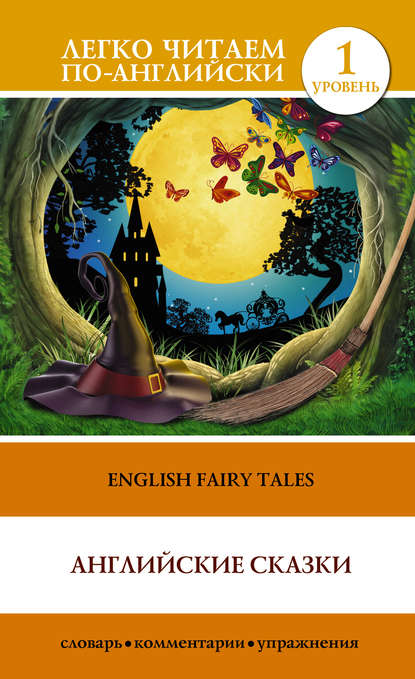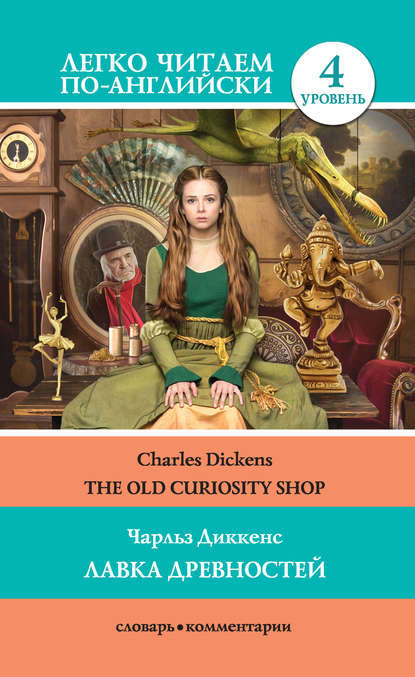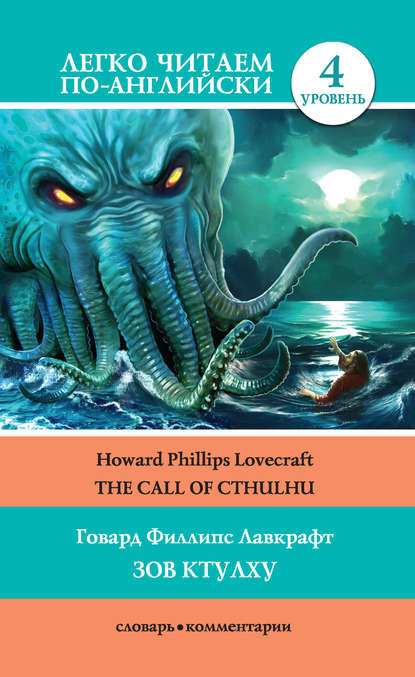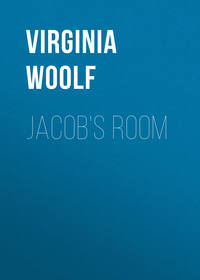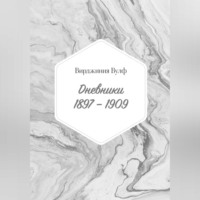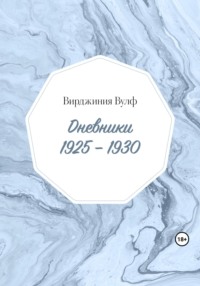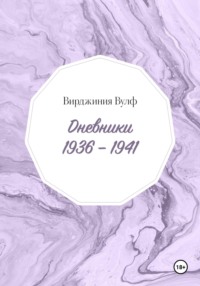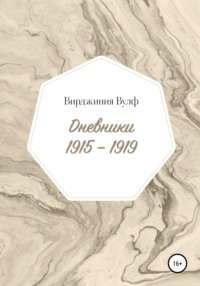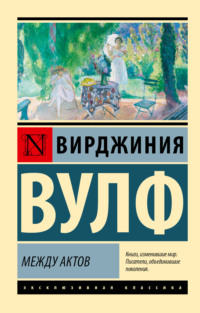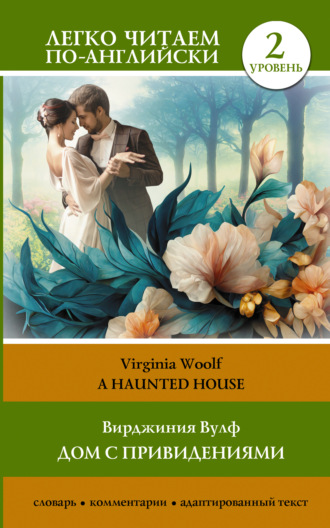
Полная версия
Дом с привидениями. Уровень 2 / A Haunted House
When she woke at night at home, when she was reading Borrow or Scott; these men, these women were thinking “What’s Mabel wearing? What a fright she looks! What a hideous new dress!” Her own cowardice, her mean blood depressed her. And at once the room seemed sordid. It was repulsive. Her own drawing-room seemed shabby. She touched the letters on the hall table. She said: “How dull!” All this now seemed unutterably silly, paltry, and provincial. She came into Mrs. Dalloway’s drawing-room. All this was absolutely destroyed.
That evening she was sitting over the teacups. Mrs. Dalloway’s invitation came. She decided not to be fashionable. It was absurd to pretend it even. Fashion meant style. Fashion meant thirty guineas at least. Why not be original? Why not be herself, anyhow? And she took her mother’s old fashion book[24]. It was a Paris fashion book of the time of the Empire.
But she dared not look in the glass. She did not face the whole horror—the pale yellow, idiotically old-fashioned silk dress. This dress was with its long skirt and its high sleeves and its waist. All these things looked so charming in the fashion book, but not on her, not among all these ordinary people. She felt like a dressmaker’s dummy.
“But, my dear, it’s perfectly charming!” Rose Shaw said.
We are all like flies which are trying to crawl over the edge of the saucer. Mabel repeated this phrase. She was trying to find some spell to annul this pain. She was trying to make this agony endurable. Tags of Shakespeare, lines from books suddenly came to her. She was in agony. She repeated them over and over again. “Flies which are trying to crawl,” she repeated. Now she saw flies which were crawling slowly out of a saucer of milk. The other people there are like flies. They are trying to hoist themselves out of something, or into something, meagre, insignificant, toiling flies. She saw them like that, not other people. She saw herself like that. She was a fly. The others were dragonflies, butterflies, beautiful insects. They were dancing, fluttering, skimming. She alone dragged herself up out of the saucer.
“I feel like some dowdy, decrepit, horribly dingy old fly,” she said to Robert Haydon.
She wanted to reassure herself. And, of course, Robert Haydon answered something quite polite, quite insincere. And she said to herself (again from some book), “Lies, lies, lies!”
She saw the bottom of Robert Haydon’s heart. She saw through everything. She saw the truth. This was true, this drawing-room, this self, and the other false. Miss Milan’s little workroom was really terribly hot, stuffy, sordid. It smelt of clothes and cabbage. Miss Milan put the glass in her hand. Then she looked at herself with the dress on. An extraordinary bliss shot through her heart.
She became a beautiful woman. Just for a second, a grey-white, mysterious, charming girl looked at her. It was the core of herself. It was the soul of herself. And she felt, suddenly, honestly, full of love for Miss Milan. She felt much fonder of Miss Milan than of anyone in the whole world.
And then everything vanished. The dress, the room, the love, the pity, the looking-glass, and the canary’s cage—all vanished. Here she was in a corner of Mrs. Dalloway’s drawing-room.
But it was all so paltry to care so much at her age with two children, to be so dependent on people’s opinions. It was all so paltry not to have principles or convictions. It was all so paltry not to be able to say as other people did, “There’s Shakespeare! There’s death! We’re all weevils in a captain’s biscuit.”
She came into the room. But she looked foolish and self-conscious. She simpered like a schoolgirl. She slouched across the room, like a mongrel.
“Now the fly’s in the saucer,” she said to herself, “right in the middle. It can’t get out. The milk is sticking its wings together.”
“It’s so old-fashioned,” she said to Charles Burt.
He stopped on his way to talk to someone else.
She meant the picture and not her dress, that was old-fashioned. And one word of praise, one word of affection from Charles can change everything. “Mabel, you’re looking charming tonight!”
Charles said nothing of the kind, of course. He was malice itself.
“Mabel’s got a new dress!” he said.
The poor fly was absolutely shoved into the middle of the saucer. Really, he had no heart. He had no kindness, only a veneer of friendliness. Miss Milan was much more real. Miss Milan was much kinder.
“Why,” she asked herself, “can’t I feel one thing always? Why can’t I feel quite sure that Miss Milan is right? Why can’t I feel Charles wrong and stick to it? Why can’t I feel sure about the canary? Why can’t I feel pity and love in a room full of people?”
It was her odious, weak character again. She can’t be seriously interested in conchology, etymology, botany and archeology, like Mary Dennis, like Violet Searle.
Then Mrs. Holman saw her. Of course a thing like a dress was beneath Mrs. Holman’s notice. Not to have value, that was it, she thought. All the time she saw little bits of her yellow dress in the round looking-glass. It was amazing to think how much humiliation and agony and effort and passion were contained in this thing. Ah, this greed was tragic. It was like a row of cormorants. It was tragic!
In her yellow dress tonight she knew that she was condemned. She was despised. It seemed to her that the yellow dress was a penance. She deserved this penance. But it was not her fault, after all. They were ten in the family. They never had enough money. Her mother carried great cans. She was just like her aunts. She wanted to live in India. She wanted to marry to some hero like Sir Henry Lawrence. She wanted to marry some builder in a turban.
She married Hubert, with his job in the Law Courts. They live in a small house. They live without proper maids. She is a fretful, weak, unsatisfactory mother and a wobbly wife, like all her brothers and sisters. Except perhaps Herbert. That wretched fly—where did she read the story about the fly and the saucer? Yes, she had those moments. But now she is forty. By degrees she will cease to struggle anymore. But that is deplorable!
She will go to the London Library tomorrow. She will find some wonderful, helpful, astonishing book. A book by a clergyman, by an American. Or she will walk down the Strand. She will enter a hall. A miner will tell about the life in the pit. Suddenly she will become a new person. She will be absolutely transformed. She will wear a uniform. She will be called Sister Somebody. She will never think about clothes again.
She got up from the blue sofa. The yellow button in the looking-glass got up too. She waved her hand to Charles and Rose. She did not depend on them. The yellow button moved out of the looking-glass. She walked towards Mrs. Dalloway and said,
“Good night.”
“But it’s too early to go,” said Mrs. Dalloway. She was always charming.
“I’m afraid I must,” said Mabel Waring. “But,” she added in her weak, wobbly voice. It sounded ridiculous when she tried to strengthen it, “I enjoyed myself enormously.”
“I enjoyed myself,” she said to Mr. Dalloway. She met him on the stairs.
“Lies, lies, lies!” she said to herself. “Right in the saucer!” she said to herself as she thanked Mrs. Barnet.
The Shooting Party
She got in. She put her suit case in the rack, and the brace of pheasants on top of it. Then she sat down in the corner. The train was rattling through the midlands. The fog came in. She opened the door. She enlarged the carriage. M. M.—those were the initials on the suit case. M. M. was staying the week-end with a shooting party. She was telling over the story now. She was lying back in her corner. She did not shut her eyes. But clearly she did not see the man opposite. She did not see the coloured photograph of York Minster. But she heard them. For as she gazed, her lips moved. Now and then she smiled. And she was handsome; tawny; but scarred on the jaw. The scar lengthened when she smiled. She was dressed out of fashion as women dressed, years ago, in pictures. She did not seem exactly a guest, nor yet a maid. She had only a suitcase and the pheasants. She listened to what they were saying. She said “Chk.” Then she smiled.
“Chk,” said Miss Antonia.
Then she pinched her glasses on her nose. The damp leaves fell across the long windows of the gallery. Then the trees in the Park shivered.
“Chk,” Miss Antonia sniffed again.
The wind sighed. The room was draughty. Now and then a ripple, like a reptile, ran under the carpet. On the carpet lay panels of green and yellow. The sun rested there. Then the sun moved. Miss Antonia looked up as the light strengthened. Her forefathers—the Rashleighs—owned vast lands, so they said. Over there. Up the Amazons. Freebooter. Voyagers. Captives. Maidens. Miss Antonia grinned. The finger of the sun rested on a silver frame. Then on a photograph; on an egg-shaped baldish head; on a lip; and the name “Edward”.
“The King,” Miss Antonia muttered, “had the Blue Room.”
They were driving the pheasants out in the King’s Ride, across the noses of the guns. The birds spurted up from the underwood like heavy rockets. Reddish purple rockets. Then they faded. They dispersed gently.
In the road, a cart stood. Soft warm bodies, with limp claws, and still lustrous eyes. The birds seemed alive. They looked relaxed and comfortable. Then the Squire cursed and raised his gun.
Miss Antonia stitched on. Now and then a tongue of flame reached the grey log. Miss Antonia looked up for a moment, as a dog stares at a flame. Then the flame sank. She stitched again.
Then, silently, the enormously high door opened. Two lean men came in. They drew a table over the hole in the carpet. They went out. They came in. They laid a cloth upon the table. They went out. They came in. They brought a green baize basket of knives and forks; and glasses. They brought sugar casters; and salt cellars; and bread. They brought a silver vase with three chrysanthemums in it. Miss Antonia stitched on.
Again the door opened. A little dog trotted in, a spaniel. It paused. And then old Miss Rashleigh entered. A white shawl clouded her baldness. She hobbled. She crossed the room. She hunched herself in the high-backed chair by the fireside. Miss Antonia stitched on.
“They are shooting,” she said at last.
Old Miss Rashleigh nodded. She gripped her stick. They were waiting.
The shooters moved from the King’s Ride to the Home Woods. They stood in the field outside. Now and then a twig snapped. But above the mist and the smoke was an island of blue—faint blue, pure blue—alone in the sky. And in the innocent air, a bell gamboled. Then it faded. Then again up shot the rockets, the reddish purple pheasants. Up and up they went. Again the guns barked. The smoke balls formed; loosened, dispersed. And the busy little dogs ran over the fields. The men bunched warm damp bodies together.
“There!” grunted Milly Masters, the house-keeper.
She was stitching, too, in the small dark room. The jersey, the rough woollen jersey, for her son, was finished. This boy cleaned the Church.
“The end!” she muttered.
Then she heard the cart. She got up. She stood in the yard, in the wind.
“They are coming!” she laughed.
The scar on her cheek lengthened.
She unbolted the door. Wing, the gamekeeper, drove the cart over the cobbles. The birds were dead now. The leathery eyelids were creased over their eyes. Mrs. Masters the housekeeper, Wing the gamekeeper, took bunches of dead birds by the neck. Then they flung them down on the floor. The floor became smeared and spotted with blood. The pheasants looked smaller now.
“The last,” Milly Masters grinned.
The cart drove off.
“Luncheon is served, ma’am,” said the butler.
He pointed at the table. He directed the footman. They waited, the butler and the footman.
Miss Antonia put away her silk and her thimble. She hung her glasses on a hook upon her breast. Then she rose.
“Luncheon!” she barked in old Miss Rashleigh’s ear.
One second later old Miss Rashleigh stretched her leg out. She gripped her stick. Then she rose. Both old women advanced slowly to the table. And there was the pheasant, featherless, gleaming.
Miss Antonia drew the knife across the pheasant’s breast firmly. She cut two slices. She laid them on a plate. Deftly the footman whipped it from her. Old Miss Rashleigh raised her knife. Shots rang out in the wood under the window.
“Coming?” said old Miss Rashleigh.
She took a mouthful of pheasant.
“The Home Woods, now,” said Miss Antonia. “Hugh is shooting.”
She drew her knife down the other side of the breast. She added potatoes and gravy, sprouts and bread sauce. Methodically in a circle round the slices on her plate. The butler and the footman were watching. They were like servers at a feast. The old ladies ate quietly, silently. They cleaned the bird methodically. The butler drew the decanter towards Miss Antonia. Then he paused for a moment.
“Give it here, Griffiths,” said Miss Antonia.
She took the carcase in her fingers. Then she tossed it to the spaniel beneath the table.
The butler and the footman bowed and went out. The wind was rising. A brown shudder shook the air. The glass rattled in the windows.
Old Miss Rashleigh filled her glass. As they sipped their eyes became lustrous like half precious stones. Miss Rashleigh’s eyes were blue. Miss Antonia’s eyes were red. Their laces quivered as they drank.
“It was a day like this, do you remember?” said old Miss Rashleigh. “They brought him home—a bullet through his heart. A bramble, so they said. Tripped. Caught his foot.”
She chuckled as she sipped her wine.
“And John…” said Miss Antonia. “The mare, they said, put her foot in a hole. Died in the field. The hunt rode over him. He came home, too, on a shutter.”
They sipped again.
“Do you remember Lily?” said old Miss Rashleigh. “A bad girl. With a scarlet tassel on her cane.”
She shook her head.
“Rotten at the heart!” cried Miss Antonia.
“Do you remember the Colonel’s letter? Your son rode like twenty devils. Then one white devil—ah hah!”
She sipped again.
“The men of our house[25],” began Miss Rashleigh.
She raised her glass. She held it high. She paused. The guns were barking. Something cracked in the woodwork. Or was it a rat behind the plaster?
“Always women,” Miss Antonia nodded. “The men of our house. Pink and white Lucy at the Mill—do you remember?”
“Ellen’s daughter at the Goat and Sickle,” Miss Rashleigh added.
“And the girl at the tailor’s,” Miss Antonia murmured, “where Hugh bought his breeches, the little dark shop on the right…”
“…that was flooded every winter. It’s his boy,” Miss Antonia chuckled, “that cleans the Church.”
There was a crash. The great log snapped in two. Flakes of plaster fell from the shield above the fireplace.
“Falling,” old Miss Rashleigh chuckled. “Falling.”
“And who will pay?” said Miss Antonia.
They laughed like old babies. They were indifferent, reckless. They sipped the sherry by the wood ashes and the plaster. They fingered their glasses. They sat by the ashes. But they never raised their glasses to their lips.
“Milly Masters,” began old Miss Rashleigh. “She’s our brother’s…”
A shot barked beneath the window. The rain began. Light faded from the carpet. Light faded in their eyes, too. Their eyes became like pebbles. Their eyes became like grey stones. And their hands gripped their hands like the claws of dead birds.
Then Miss Antonia raised her glass to the mermaid. It was the last drop.
“Coming!” she croaked.
A door opened. Then another. Then another.
“Closer! Closer!” grinned Miss Rashleigh.
Three great hounds rushed in. Then the Squire himself entered, in shabby gaiters. The dogs were tossing their heads. The dogs were snuffling at his pockets. They smelt the meat. They snuffed the table. They pawed the cloth. Then they flung themselves upon the little yellow spaniel. The spaniel was gnawing the carcass under the table.
“Curse you, curse you!” howled the Squire.
But his voice was weak.
“Curse you, curse you!” he shouted.
Miss Antonia and Miss Rashleigh rose to their feet. The great dogs seized the spaniel. They mauled him with their great yellow teeth. The Squire was cursing the dogs. The Squire was cursing his sisters. With one lash he curled to the ground the vase of chrysanthemums. Another caught old Miss Rashleigh on the cheek. The old woman staggered backwards. She fell against the mantelpiece. Her stick struck the shield above the fireplace. She fell with a thud upon the ashes. The shield of the Rashleighs crashed from the wall. And then King Edward, in the silver frame, slid, toppled, and fell too.
The grey mist thickened in the carriage. It put the four travellers in the corners at a great distance from each other. The effect was strange. The handsome woman lost her shape. Her body became all mist. Only her eyes gleamed. Eyes without a body. In the misty air they shone out. They moved. An absurd idea? But memory is a light that dances in the mind. The ghost of a family, of an age, of a civilization dances over the grave.
The train slid into the station. The lights blazed. And the eyes in the corner? They were shut. Perhaps the light was too strong. And of course it was plain—she was quite an ordinary, rather elderly, woman. She took her suitcase. She rose. She took the pheasants from the rack. She murmured “Chk., Chk” as she passed.
Lappin and Lapinova
They were married. The pigeons fluttered. Small boys in Eton jackets threw rice. A fox terrier sauntered across the path. Ernest Thorburn led his bride to the car through the crowd of strangers. The strangers are always in London to enjoy other people’s happiness or unhappiness. Certainly he looked handsome. She looked shy. The car moved off.
That was on Tuesday. Now it was Saturday. Rosalind became Mrs. Ernest Thorburn. Ernest was a difficult name. She didn’t like that name. She preferred Timothy, Antony, or Peter. He did not look like Ernest either. The name suggested the Albert Memorial.
Конец ознакомительного фрагмента.
Текст предоставлен ООО «Литрес».
Прочитайте эту книгу целиком, купив полную легальную версию на Литрес.
Безопасно оплатить книгу можно банковской картой Visa, MasterCard, Maestro, со счета мобильного телефона, с платежного терминала, в салоне МТС или Связной, через PayPal, WebMoney, Яндекс.Деньги, QIWI Кошелек, бонусными картами или другим удобным Вам способом.
Примечания
1
threshing machine – молотилка
2
one over the other – друг на друга
3
Nothing to look at – Не на что смотреть.
4
the detail matters nothing – детали ничего не значат
5
I don’t mind – мне всё равно
6
that’s over – всё кончено
7
St. Paul’s – собор св. Павла
8
motor-omnibuses – автомобили
9
confound her soul! – чтоб ей пусто было!
10
off they go – они уходят
11
Tubes – метро
12
suits me the best – мне вполне удобно
13
makes one despair – приводит в отчаяние
14
for certain – наверняка
15
book-binding tools – инструменты для переплёта книг
16
he will do – он сгодится
17
Whitaker’s Table of Precedency – ежегодные справочники общей информации, иерархические таблицы
18
Landseer prints – гравюры Ландсира
19
for the most part – большей частью
20
Lord High Chancellor – лорд-канцлер
21
chest of drawers – комод
22
That is what one wants to be sure of. – Вот в чём хочется быть уверенным.
23
life isn’t done with – жизнь не кончена
24
fashion book – модный журнал
25
the men of our house – мужчины в нашем роду




